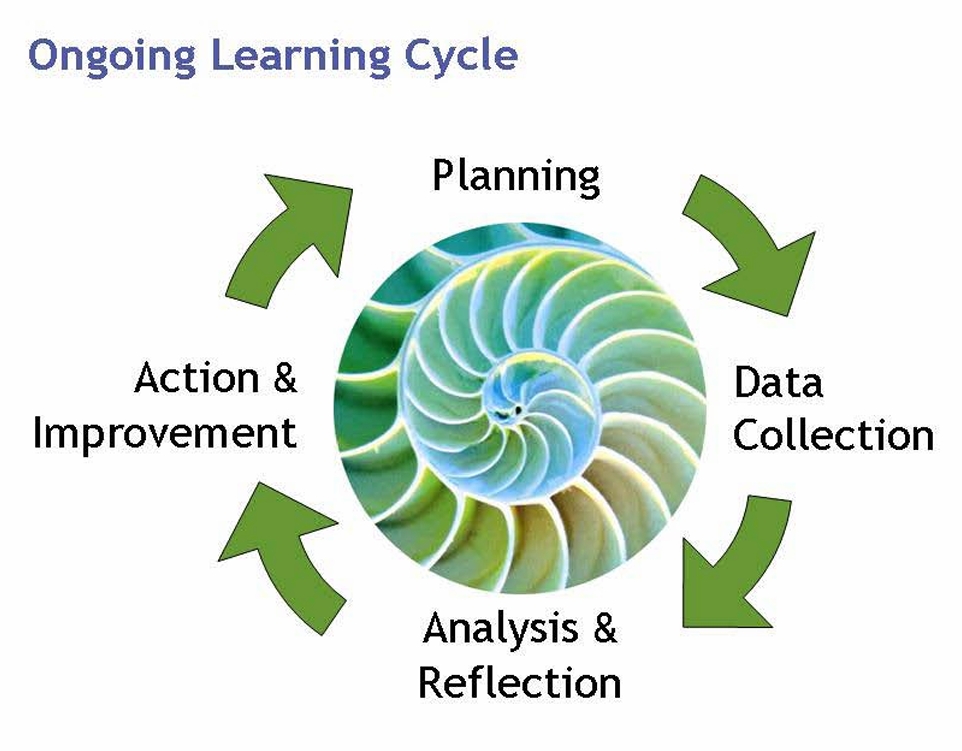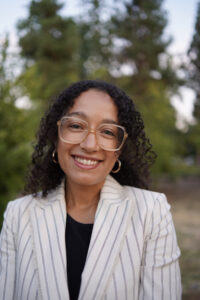For many organizations within the philanthropic space, the traditional funding process may look something like this: start with goals for the funding, identify grantees, issue payments, and request a donor report for evaluation purposes. Funders may want organizations to collect metrics, track activities, and measure impact, but it’s important that we first ask: do our current evaluation processes effectively support addressing the problems we’re trying to solve?
I moderated a recent GCIR webinar asking this exact question, hearing from learning experts at three different philanthropic institutions – Arturo Garcia, Interim Co-Lead for Strategic Learning, Research, and Evaluation at the Kresge Foundation; Kyle Rinne-Meyers, Director of Learning at Grantmakers for Effective Organizations (GEO); and Austin Snowbarger, Senior Manager of Strategy and Research at the Center for Disaster Philanthropy (CDP). Learning for evaluation purposes, we discussed, is not a one-time event at the end of a grant period, but a powerful process that is ongoing. Through this conversation, we teased out the important relationship between learning and strategy, the ways learning processes can hold us accountable to the communities we serve, and how funders can start learning now.
What do we mean by learning anyway?
Julia Coffman and Tanya Beer at the Center for Evaluation Innovation provide a useful definition: “Strategic learning occurs when organizations or groups integrate data and evaluative thinking into their work, and then adapt their strategies in response to what they learn.” With the ever-changing dynamics of immigration in the U.S. and globally, the ability of funders in this space to learn and adapt is paramount.
When we learn, we go beyond evaluation for the sake of it, or to answer discrete questions, to instead use evaluation and data of all kinds to improve effectiveness. Data collection and analysis are not ends in themselves, but inputs to a reflection process that leads to action and improvement.
Crucially, learning happens together. Whether we’re focused on equitable health outcomes, education, or disaster response, grantmaking strategy needs to come from an understanding of how these issues impact different communities on the ground.
Philanthropic institutions might furthermore embark upon their own internal learning about the issues they seek to address. The major challenges of today are deep-seated and complex, so an understanding of how we got here and how systems operate can help us make the change we want to see. Sharing up-to-date information on priorities of the migrant justice movement is of course a key offering of GCIR through our programming and technical assistance. Here are some additional examples on how organizations have pursued internal learning on issues related to migration.
- Kresge Foundation has a book club and recently read Roxanne Dunbar-Ortiz’s Not “A Nation of Immigrants”: Settler Colonialism, White Supremacy, and a History of Erasure and Exclusion.
- CDP has sought to educate themselves internally on the connection between disaster and migrant justice and then turn those learnings into resources for the sector through their education materials, webinars, and grantmaking.
- Here at GCIR, we’re in our second year of collective study on themes like imperialism, racial capitalism, and anti-Blackness to explore their connections with migration.
So, what do funders need to know about learning?
First, think of learning and strategy as interconnected.
In doing so, we go beyond learning and evaluation as processes that happen just at the end of a project. “If we’re talking about centering and engaging communities, let’s make sure we’re not just engaging them in the learning and evaluation process,” says Kyle, the Director of Learning at GEO. Kyle recommends that foundations actively engage with communities, listen to their needs, and center them throughout the strategy development process. These steps are important, Kyle says, “so that actually what we’re doing is designed to meet those needs, rather than trying to figure it out after the fact.” In turn, what we learn over time should come to influence strategy going forward.
Use learning and evaluation to support inclusive approaches to social change.
Like the philanthropic sector itself, donor reporting practices are often based on extractive orthodoxies that need to be interrogated. Thus, there is an unlearning that needs to take place so that the evaluative methods we carry out may result in useful information for the communities and organizations who are carrying out the work on the ground, and beyond boards merely concerned with return on investment. Kresge has been a leader in using learning and evaluation as a means toward equity, justice, and collective liberation (see, for example, this piece by Arturo), as has Borealis Philanthropy with Movement-Defined Learning.
Start small.

It’s okay to have a big vision, but as Austin with the Center for Disaster Philanthropy advised us, “Start small, ask good questions, and then try things out.” From my own experience leading learning processes at GCIR, there is a spirit of experimentation that gets unleashed when teams know we’ll have the chance to learn and evaluate ourselves afterwards. Starting small also means integrating learning practices into already existing processes, eliminating the necessity for a whole new program of work. The addition of a simple learning log, for example, can add evaluative capacity to projects and support timely adaptation.
GCIR, like many of us in the philanthropic and social justice spaces, aims to do just work in just ways. Strategic learning is a powerful tool that allows us to do that, so that we may hold ourselves accountable to our goals while also living our values.
We look forward to other chances to speak about learning and its power to support grantmaking to migrant communities. If you have ideas for future topics for us to explore, please feel free to get in touch with Anduriña Espinoza, Programs Learning Manager, or reach out to GCIR using our contact form.
Anduriña (Andy) Espinoza-Wasil is the Programs Learning Manager at Grantmakers Concerned with Immigrants & Refugees, where she stewards learning for understanding and deepening the organization’s impact. Previously, Andy worked on producing reports for the United Nations Entity for Gender Equality and the Empowerment of Women (UN Women). She has a master’s degree in Migration Studies from the University of Oxford and a BA in International Affairs from George Washington University. She currently resides in Los Angeles, CA and tries to embody the pura vida mentality of her home country, Costa Rica.

